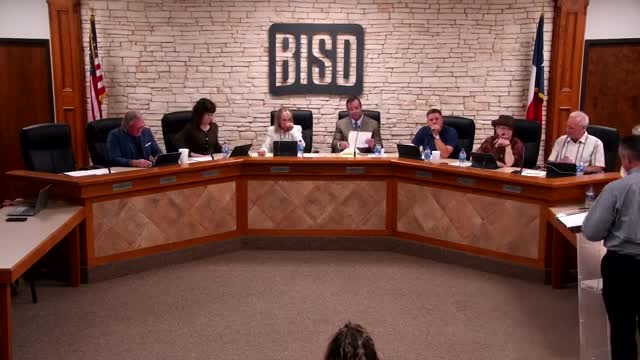Article not found
This article is no longer available. But don't worry—we've gathered other articles that discuss the same topic.

Burleson ISD trustees approve routine motions including depository award, innovative courses and temporary hiring authority

Burleson ISD: 234 teachers to receive TIA stipends totaling about $1.87 million; district tapped as TEA SLO pilot

Burleson ISD says emergency operations plan approved and all campuses pass TEA intruder detection audits

Parent urges Burleson ISD to strengthen IEP, FERPA compliance and ADHD supports

